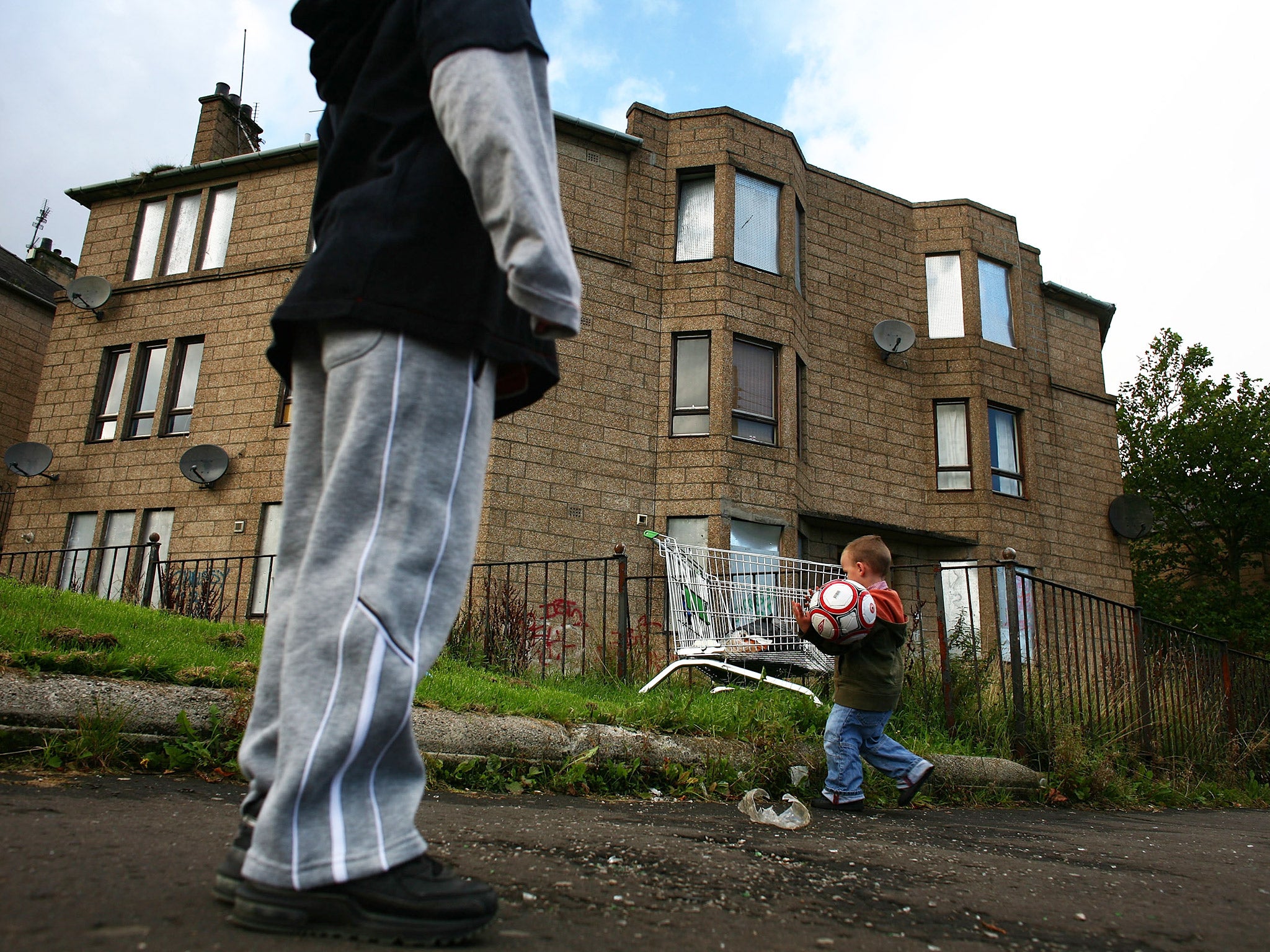Children as young as 4-years-old being introduced into gangs in Glasgow, research finds
Rather than formalised gangs, the groups were based on local friendships

Children can be as young as four when they begin the process of being socialised into gangs, research in Glasgow has found. By the age of 12 they might be a fully fledged gang member drawn into the associated violence, academic Johanne Miller will tell the British Sociological Association’s annual conference in Glasgow.
Ms Miller, of the University of the West of Scotland, researched 60 members of 21 of Glasgow's 170 gangs as part of her PhD, spending weeks working with them. She said: “The process that emerged from participants was that young people aged between four and 12 began playing in the few streets that made up their scheme – a council-built estate – and began from a young age to be socialised into street culture.”
Rather than being formally organised criminal groups, she said rivalries simply grew up as local friendships were established within estates. “These children have grown up hearing stories of territorial rivals and the crimes they enact,” she said. “So within the child’s conscious there is a known enemy, an ‘other’ out there who is already a threat in their minds. There is a tradition of associating your scheme as something that needs to be protected.”
The peak time to be in a gang was between 14 and 18 and most members only stayed in one for around three years before drifting away. Those involved at an older age described serious violence and injuries as a result of their membership.
“I was told stories about broken arms, a broken back from falling from a cliff, nails through feet, being hit with cars, someone being set on fire, suicides, shootings, stabbings, a boy’s brother buzzing gas and it blowing up, killing him,” Ms Miller recalled. “People being hurt and dying was an accepted part of their lives, it was just another inevitable part of occupying the streets for the young people.”
Join our commenting forum
Join thought-provoking conversations, follow other Independent readers and see their replies
Comments
Bookmark popover
Removed from bookmarks